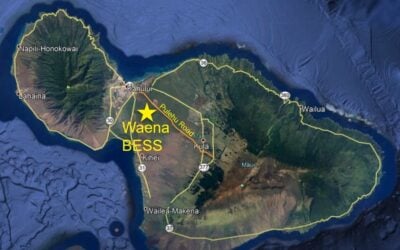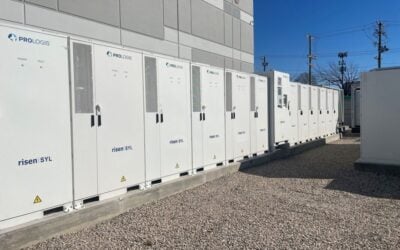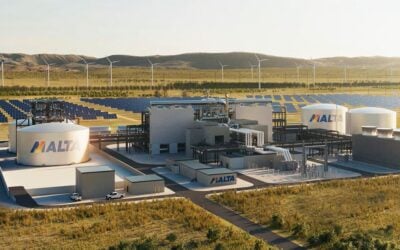
A megawatt-scale sodium-sulfur (NAS) battery demonstration project involving South Korea’s largest electric utility has gone online.
Operational start of the 1,000kWdc/5,800kWhdc NAS battery storage system made by NGK Insulators was announced by the Japanese manufacturer and designer of the technology last week.
Enjoy 12 months of exclusive analysis
- Regular insight and analysis of the industry’s biggest developments
- In-depth interviews with the industry’s leading figures
- Annual digital subscription to the PV Tech Power journal
- Discounts on Solar Media’s portfolio of events, in-person and virtual
It will be used by Korean Electric Power Company (KEPCO) in a project to compare performance of different stationary energy storage batteries at a testing site run by the utility in Naju City, Jeollanam-do Province. Other batteries known to be tested at the site include vanadium redox flow batteries (VRFBs).
The installation is one of three that NGK Insulators is supplying NAS battery equipment to in South Korea for demonstration projects with its global distribution and technology partner, BASF Stationary Energy Storage, and South Korean electric power systems and power-to-gas (P2G) specialist G-Philos.
As the name implies, BASF Stationary Energy Storage is the energy storage subsidiary of German chemicals company BASF, which has been working with NGK since 2019 on activities related to commercialisation, distribution and marketing of the sodium-sulfur energy storage devices. A couple of years ago a NAS battery system was installed and commissioned at a BASF production site in Antwerp, Belgium.
NAS batteries are made with what are claimed to be abundant raw materials, which along with the sodium and sulfur include carbon, silicon-based materials, steel and aluminium and the speciality industrial ceramics for which NGK Insulators is known in other industries, such as vehicle production.
One of the earliest commercially available long-duration energy storage (LDES) technologies on the global market, NGK claims the battery is ideally suited to applications requiring several hours of energy storage, with a sweet spot at about 6-8 hours duration.
From 1.2kWh battery cells that operate in a temperature range between 290°C – 360°C, stacked into modules and racks and then put into 20ft containers each with maximum 250kW output and 1.45MWh energy capacity, up to four containers can be stacked to provide megawatt-scale solutions.
Around 720MW and 5GWh of NAS batteries are in operation worldwide today at over 250 locations, with a claimed lifetime of 20 years operation, equivalent to around 7,300 cycles at 100% depth of discharge.
The trio’s first project together in South Korea combined NAS batteries with a hydrogen electrolyser and G-Philos’ power conversion system (PCS) tech and was inaugurated in August 2020 at a wind farm, Sangmyung on Jeju Island.
That P2G pilot project was 208KWdc/1,250kWhdc, for power plant operator Korea Midland Power Co (KOMIPO), which itself is a subsidiary of KEPCO. It was described as successful by the parties in November 2022, when a follow-up project, another P2G demonstration on a larger scale, was announced and reported by Energy-Storage.news.
That project is with the Korea Institute of Energy Research (KIER). Due to go online in December 2024 at a site in Samcheok, it will be a 2,000kWdc/11,600kWhdc NAS battery energy storage system (BESS), and again its scope will be to evaluate the use of the batteries to help stabilise output from a wind farm to feed green hydrogen production.
Energy-Storage.news’ publisher Solar Media will host the 1st Energy Storage Summit Asia, 11-12 July 2023 in Singapore. The event will help give clarity on this nascent, yet quickly growing market, bringing together a community of credible independent generators, policymakers, banks, funds, off-takers and technology providers. For more information, go to the website.






